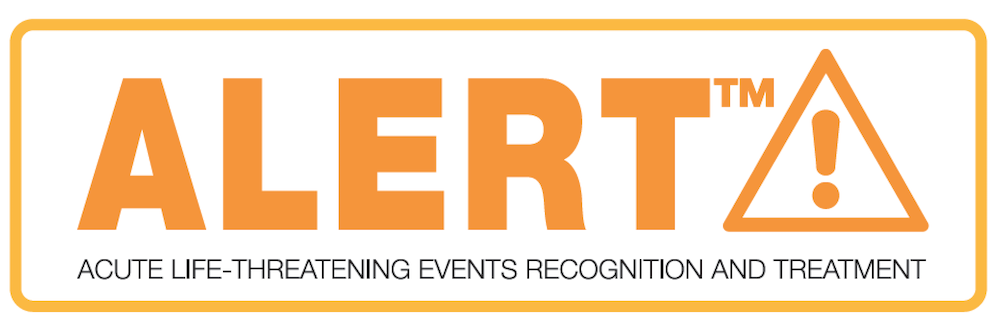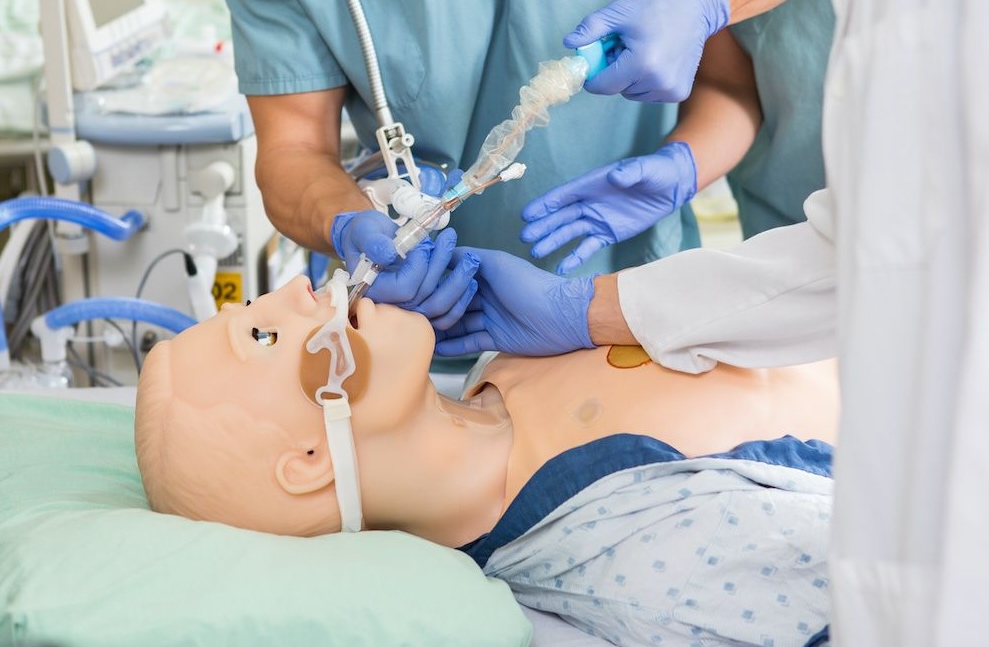The ALERT (Acute Life Threatening Events Recognition and Treatment) is a well-established program that focuses on the detection and management of patients becoming unwell in the healthcare setting. The course was developed to provide the multi-profession healthcare team with a systematic approach to recognizing, treating and escalating to a higher level of care when needed. In this article by Dr. Kim Baily, we learn more about the courses available from the United States and the United Kingdom.
The one day course is geared to teach clinical staff an organized approach to detection and early management of hospitalized patients who have potentially or actual life threatening signs and symptoms which might be overlooked.
The course incorporates pre-course reading, informal and interactive seminars, practical demonstrations and role-play during clinically based simulations. Participants undertake role interchange during scenarios, thereby facilitating mutual understanding. Participants are encouraged to reflect on their own actions and to focus on patient situations that might require additional assistance such as activations of a Rapid Response Team or transfer to ICU.
The ALERT course objectives are:
- To teach healthcare professionals a structured and systematic approach to the assessment and management of patients.
- By using a structured and systematic approach deteriorating patients will be identified earlier and care will be escalated to others when appropriate. This approach can reduce avoidable in-hospital deaths and cardiac arrests.
- To teach healthcare professionals that involving expert senior help early, such as Critical Care, will enable appropriate and timely intensive care unit admissions.
- To introduce tools to healthcare professionals which will improve team working and communication.
The course is completed within 8 hours although participants are expected to review the comprehensive reference manual prior to attending the class. The morning didactic program consists of short lectures focusing on the ABCDE response to trauma (airway, breathing, circulation, dysfunction, exposure). Note the focus is on ABCDE rather than diagnosis.
Covered topics may include airway, breathing, circulation, chest pain, pain management, hypovolemia, overdose, seizure, anaphylaxis, pulmonary embolus, sepsis and human factors. The afternoon program consists of faculty demonstrations of the ‘ideal’ approach to conducting patient assessments interspersed with healthcare simulation stations where learners can practice identifying patient signs and symptoms that warrant an escalated level of care.
Note, although medical simulation is an important component of the course, minimal equipment is needed and the course can be implemented at most healthcare centers. Following a short briefing, some participants may be used as patients for the afternoon scenarios. The course, which emphasizes interpersonal/interprofessional communication, focuses on the following topics:
- How to assess critically ill patients
- Managing hypotensive patients
- Managing blue patients
- Managing patients in a coma
- Managing patients in pain
- Managing patients with a low urine output
- Communication and a brief introduction to the ethics of acute care.
The ALERT course was originally published by Smith, G. B., Osgood, V. M. and Crane, S. in the United Kingdom by the Portsmouth Hospitals NHS Trust in 2002 to provide newly qualified doctors and nurses greater confidence and ability in the recognition and management of adult patients who have impending or established critical illness. The course is suitable for a variety of disciplines and career levels. Following updates, interprofessional communication became a major component of the current course.
The course has been implemented in over 100 centers in the UK, Eire, the Netherlands and New Zealand with more than 100,000 healthcare professionals from a variety of disciplines completing the course. More recently, Russell Metcalf, Associate Director, Womens’ Guild Simulation Center Medical Education, Zachary Krom, Education Program Coordinator, Critical Care Services and Ai Jin Lee, Simulation Program Education Coordinator have brought the course to Cedars Sinai Medical Center at their Westwood campus.
Data from earlier courses indicated that participants felt their knowledge had improved, they were better able to identify patients needing additional help and their confidence had improved. Data from the Cedars Sinai implementation should be published towards the end of 2019. In addition, Torrance Memorial Medical Center, a Cedars Sinai affiliate will offer the course in 2020.
Contact Information for ALERT Training Centers
United Kingdom: Portsmouth Hospitals NHS Trust, Queen Alexandra Hospital.
United States: Cedars-Sinai Women’s Guild Simulation Center (offers CEUs)
Early detection of patient deterioration or inappropriate management can result in late treatment, avoidable admissions to intensive care and in some cases, unnecessary deaths. Improving staff understanding of the way disturbances in physiology may affect the sick patient should lead to a more rapid detection of signs of clinical deterioration. The ALERT course is designed to improve the assessment and management skills of the acutely ill patient. This in turn, should reduce the number of cardiac arrest calls (code blues), produce earlier and more appropriate referrals to the intensive care unit. Finally the course leads to improved multi-professional teamwork and communication.
Learn More About ALERT UK or ALERT USA!
Today’s article was guest authored by Kim Baily PhD, MSN, RN, CNE, previous Simulation Coordinator for Los Angeles Harbor College and Director of Nursing for El Camino College. Over the past 16 years Kim has developed and implemented several college simulation programs and previously chaired the Southern California Simulation Collaborative.
Have a story to share with the global healthcare simulation community? Submit your simulation news and resources here!








